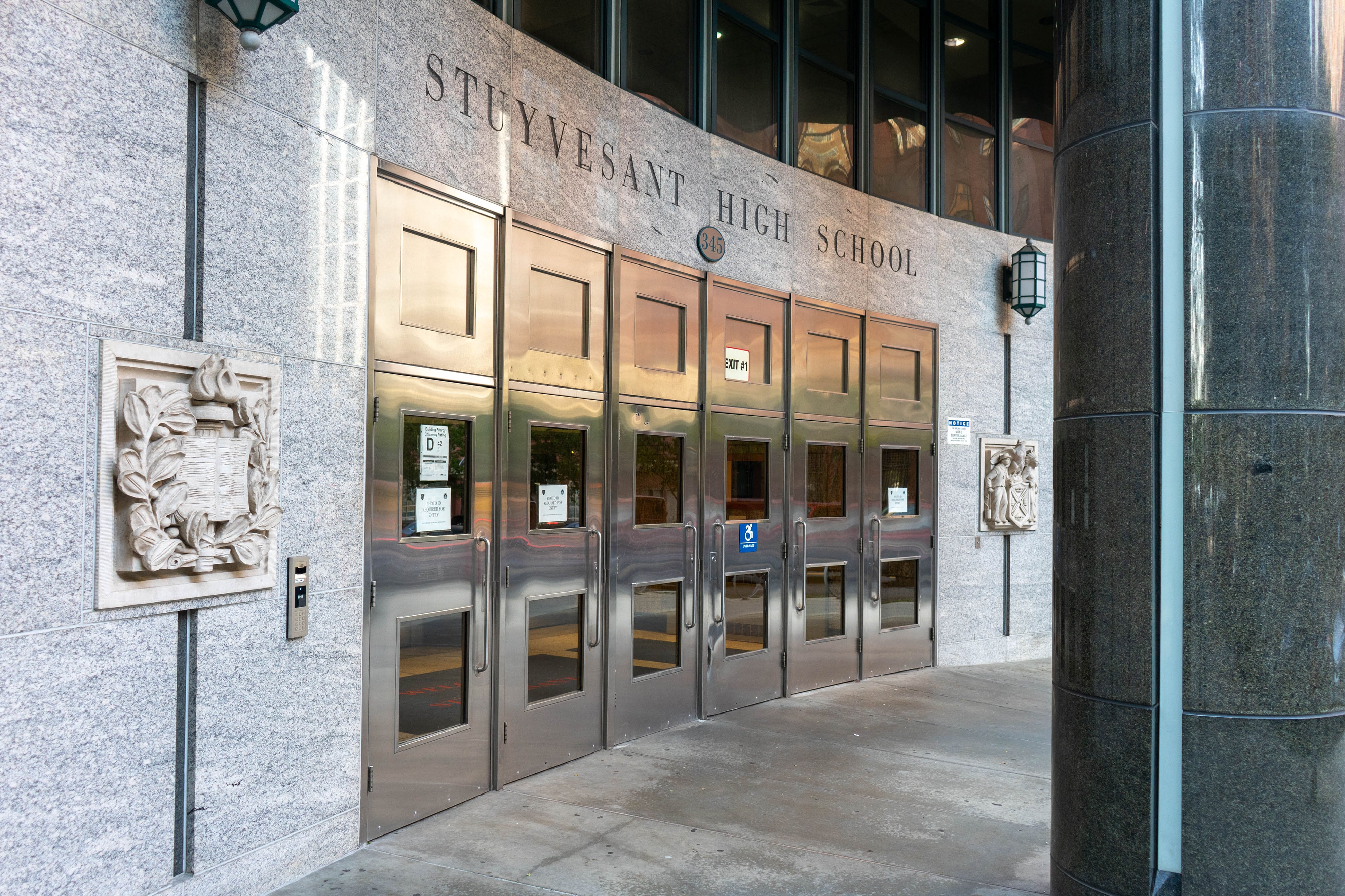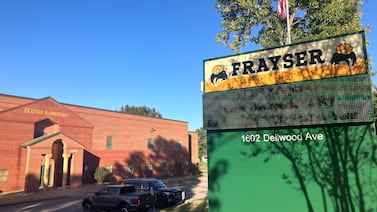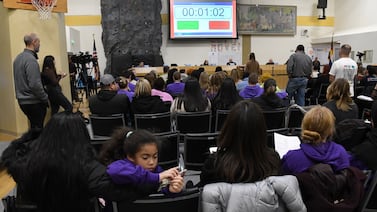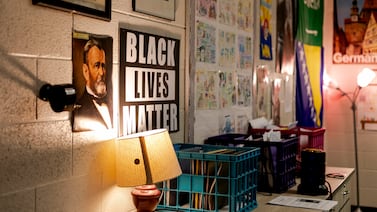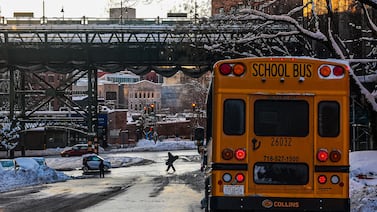Sign up for Chalkbeat New York’s free daily newsletter to get essential news about NYC’s public schools delivered to your inbox.
New York City’s school board voted overwhelmingly Wednesday night to approve a contract to computerize the entrance exam to several elite public high schools, ending several months of uncertainty over the test’s immediate future.
Fourteen members of the Panel for Educational Policy, which has authority over Education Department contracts, voted to green-light a 5-year, $17 million contract with the testing company Pearson to digitize the Specialized High School Admissions Test, or SHSAT, starting next year. Two members voted no, while four abstained.
The vote followed hours of public testimony — the vast majority urging city officials to approve the contract — and several weeks of mounting public debate around the contract. It stirred up a larger fight over the exam, which has long served as a lightning rod for conversations about diversity and admissions in the city’s segregated school system.
The vote garnered an unusual amount of attention because city officials asserted that without the contract, they would have no way to administer the entrance exam, which is enshrined in state law. That would leave the city unable to fill the freshman classes at the eight specialized high schools that use the test as the sole basis of admission, Education Department officials said.
Some critics challenged the city’s assertion, arguing that five of the eight specialized high schools not explicitly mentioned in the state law could use other admissions criteria. Several panel members said they proposed a temporary short-term extension of the paper and pencil test.
The city has contracted for years with Pearson to design and administer a paper and pencil version of the SHSAT, but that contract is set to expire this year.
Education Department officials initially introduced the proposal for a new, computerized version of the Pearson test in October, but agreed to postpone the vote twice to address the concerns of panel members. Panel members, the majority of whom are appointed by Mayor Eric Adams, organized their own town hall last week to hear from the public.
Critics of the contract argued that computerizing the test could heighten the inequity of a system that already admits few Black and Latino students, students with disabilities, and English learners. They contended that Pearson has a poor track record and questioned the price tag of the proposal. Some panel members argued they’re well within their rights to use the panel’s power over contracts to block the exam.
The panel previously rejected a city contract for a gifted and talented exam during the COVID pandemic over equity concerns.
“I have not been convinced at all tonight that this process is fair and equitable to my community in the Bronx,” said panel member Tom Sheppard, a representative of parent council presidents. “Whether it is online or on paper, I am voting no on this contract because I understand what this test represents.”
The other dissenting voter pointed to specific concerns about the shift to a computerized test.
“We’re being asked to radically change” the test’s format ”sight unseen,” said Jessamyn Lee, a Brooklyn panel member who also voted no.
But supporters of the proposal argued that the shift to a computerized test is in line with the way other assessments are moving and said the panel has no right to interfere with a process mandated by state law.
“Using the power of contract approval to cause operational chaos in service of a policy goal that is outside the PEP’s jurisdiction is grossly irresponsible,” said Micah Lasher, an incoming state assemblyman from Manhattan’s Upper West Side, on the social media platform X.
The threat to next year’s test administration sparked an outpouring of support for the test from parents and elected officials, including U.S. Senate Majority Leader Chuck Schumer, who issued a statement Wednesday in support of the contract.
The fight echoed the backlash to former Mayor Bill de Blasio’s failed proposal to scrap the exam in 2018 as part of an effort to diversify the specialized high schools. Many Asian-American families took the floor at Wednesday night’s panel meeting at Sunset Park High School in Brooklyn to fiercely defend the exam, arguing it’s an objective metric to determine admission to the coveted schools. Other parents and Education Department officials argued that pulling the rug out from under families expecting to take the test next year would be unfair.
“If we want to maintain these schools…we have to have a contract so the test can be administered,” First Deputy Chancellor Dan Weisberg said at a Queens town hall last month. “If we don’t have that, there’s no incoming class in these specialized high schools and the schools can’t continue.”
Panel member Shirley Aubin of Queens, who abstained on the contract, argued that it’s the responsibility of the Education Department to have a backup plan in place in case the panel rejects a contract.
Panel Chair Greg Faulkner, who initially requested the delays in the hopes of getting more feedback, said the testimony that ultimately resonated the most came from students who could be affected next year by a no vote.
“I am convinced...that if we were to defeat this contact, we would really cripple the incoming freshman class,” he said, “and that’s not a position I would feel comfortable [in].”
Michael Elsen-Rooney is a reporter for Chalkbeat New York, covering NYC public schools. Contact Michael at melsen-rooney@chalkbeat.org.

